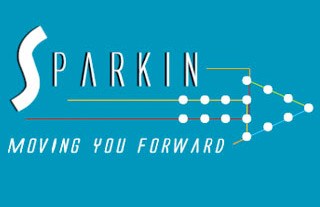Optimism Is Not A Choice
For the last five years on and off I’ve spent much time caring for and seeing my mother’s cruel decline. But I’m realistic and naturally chose to default to ‘the good in situations’ and while this subject truly depresses me, I pivot to how lucky am I to have had this mother/who is still around at my age etcetera.
I got this optimistic outlook/default mode from her. It can be innate but I believe largely this is something you learn and this is the best news. Because, personally for sure, but professionally absolutely, a positive state of mind does much more than help you cope, as even when the proverbial shit has covered the fan, if you exhibit an optimistic approach and what that entails, you are more likely to be of service to others, (colleagues and clients alike).
It’s easy to pontificate about what we need to be or not reality is, when most of us are struggling to keep up, to meet deadlines, we just do the best we can do irrespective and our mentality is not something we actively have time to dwell on. But I’m suggesting when you can think about, to think about steps to consistently be it.
Optimism I contest, is more important than ever. Both the pace of change, scant resources, performance-oriented marketing, business uncertainty, the increasing challenge of effective media cut through, all make the need for an effective problem solving/solution- oriented mindset essential. This is much easier if ‘positive’ is baked in.
A colleague or client dragged along by negativity will feel very differently as opposed to working with someone with a ‘can do’ approach, albeit one that is realistic about challenges. They may actually want to work with the person again!
And while an optimist may be easier to work with (assuming like for like technical ability with someone more pessimistic) the real reasons for wanting to work with an optimist relate to the likely quality of thinking and solution generation they bring.
Being optimistic makes you more professionally effective. Optimists offer,
‘A mental attitude characterized by hope and confidence in success and a positive future.’
Or as Martin Seligman suggests,
‘The basis of optimism does not lie in positive phrases or images of victory, but in the way you think about causes” (Martin Seligman)
Optimistic strategists are more likely to offer a solution-oriented mindset. But why?
Optimists are:
1. Outward looking/curious, essential for understanding others.
2. Actively seek engagement /Are more open, curious people who discover a broader range of options.
3. Enjoy communicating and are likely to garner a greater quality of information as individuals respond to their approach and energy. Engagement will likely gain a greater breadth of understanding and therefore ability to reach potential optimal paths/solutions.
Can’t Pessimists Thrive?
A bit like empathy, 99% of strategists believe they are optimists. Truth is, most of us can show up ‘positive’ but those that have maximum impact are those that have optimism baked in; They are not trying to be it they are it. They naturally have a constructive mindset,’ they consistently show up glass and solution optimal. And it’s the consistency that is key both for you and how others experience you.
“The pessimist sees difficulty in every opportunity. The optimist sees opportunity in every difficulty”. (Winston Churchill)
Pessimists are of course able to be highly effective strategists. The point is, those who default to the optimistic are better able to reveal and capitalise on any perceivable spectrum of options, because of the way they show up. In large part because of this, they are the strategists that not only cope with change but have the capacity to lead clients through it.
And if not for effectiveness at work, for you! A 2025 English longitudinal study of ageing, (ELSA) concluded what many recent surveys have, that having a consistent positive outlook enhances emotional and cognitive function, reduced stress levels and greater life expectancy.







